#Mammootty
Explore tagged Tumblr posts
Text
Been a while sunflowers🌻 ‼️ Happiest Letterboxd Sunday yall ✨✌🏽
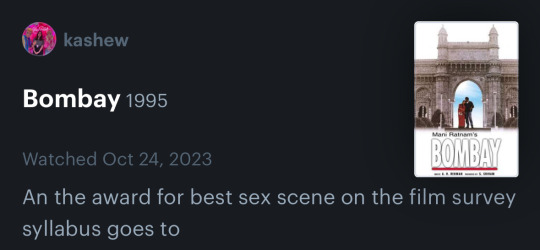

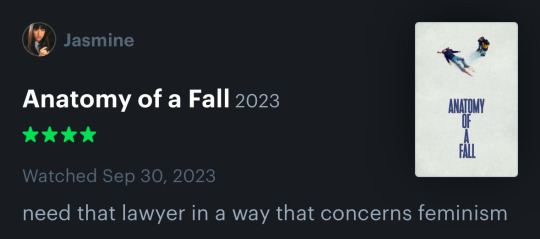
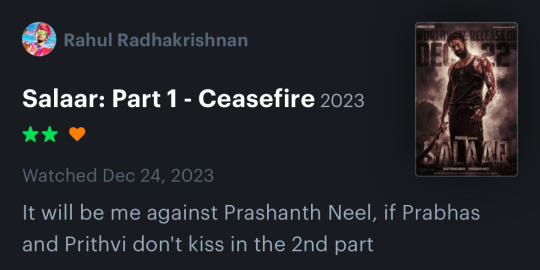
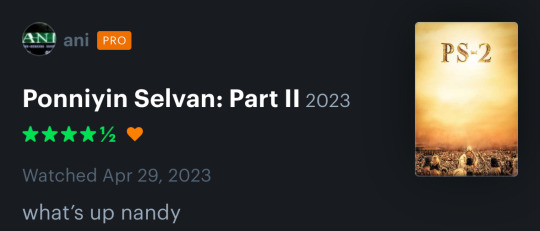
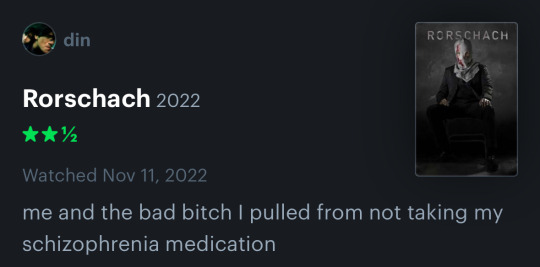
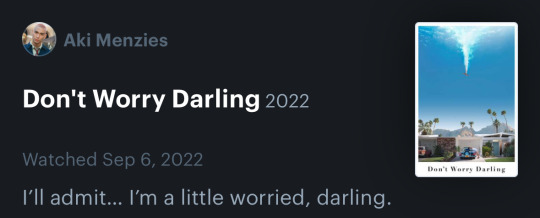
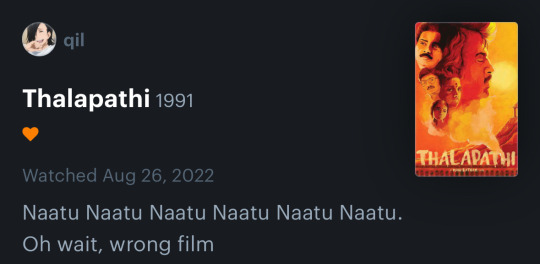

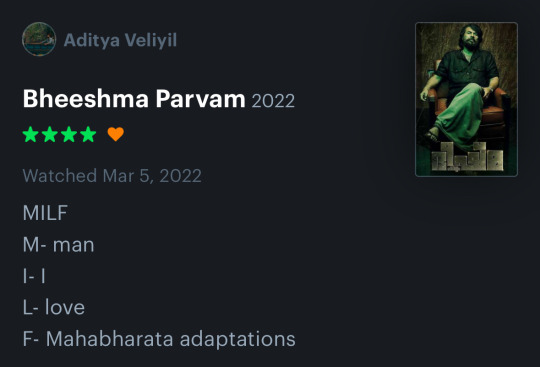
#bombay#mani ratnam#om shanti oshaana#nazriya#anatomy of a fall#swann arlaud#salaar#prabhas#prithviraj sukumaran#ponniyin selvan#rorschach#don’t worry darling#olivia wilde#thalapathi#rrr#guntur kaaram#trivikram#bheeshma parvam#mammootty#letterboxd
45 notes
·
View notes
Text

Gathering all my malayalies on tumbler here let's see how many of us are here
#malayali#malayalam#thiruvananthapuram#kollam#pathanamthitta#alappuzha#kottayam#idukki#ernakulam#thrissur#palakkad#kozhikkod#wayanad#malappuram#kannur#kasaragod#mallu#mohanlal#mammootty#dulquer salmaan#nivin pauly#fahadh faasil#trivandrum
13 notes
·
View notes
Text

Kaathal - The Core (2023)
37 notes
·
View notes
Text
youtube
Year-end discussion in the Indian film space was dominated by the success of controversial film maker Sandeep Reddy Vanga's latest offering of undiluted misogyny and rage, appropriately titled "Animal"; but the best commentary I've seen on failed fatherhood and violent, toxic masculinity this year comes in a 2 minute scene in Kaathal: The Core, where a wizened old man testifies quietly in a family court that yes, he always knew that his son is gay, and still coerced him into a heterosexual marriage.
Kaathal: The Core isn't a film without flaws; one could argue that it's the quintessential film made about queer people by straight allies- actually more interested in the reaction to queerness and the adjustment to queerness by cishets, than in queer lives; that it has a one dimensional view of the reality of queer living in India. It has its moments of what I call "educational speechifying" that feel tonally at odds with the rest of it, but again, this paternalism in Indian cinema of the self-consciously "progressive" variety isn't unfamiliar.
The ending feels a little trite, and some artistic choices- an actual rainbow in the sky appears as the two lovers drive off into the sunset of their newly liberated lives-feel particularly anvil-like- much like the ending of another of director Jeo Baby's films, The Great Indian Kitchen, which was an exploration of the brutality of Indian-flavoured patriarchy. In short: a movie filled with intricately and deliberately placed subtleties that occasionally - somewhat inexplicably-loses confidence in its audience, and chooses to remedy that by being a bit over the top.
But those are minor quibbles. This movie gutted me. The story revolves around a middle-aged closeted gay man from a small close knit village community in Kerala whose life- and the lives of those around him- is thrown into disarray when his wife of twenty years files for divorce citing his gayness as the reason for the breakdown of the marriage- a step she takes just as he's nominated as his party's candidate for the local elections. With this premise, you'd be forgiven for expecting the movie to be high decibel melodrama- and possibly a tragedy- from start to finish. Instead, it deliberately chooses the quieter route, the most tender one; while not flinching away from the grim realities of widespread homophobia, it portrays both individuals and a community who , in a moment of crisis, discover that they are better than they think they are. And it does this not from a jingoistic, self-congratulatory ethno-nationalist perspective- but from a place of genuine love- as a reminder and a beacon in these dark times.
All of this is anchored in some fantastic performances- Mammootty once more showing up to remind us why he's one of the greatest living actors in the world, and Sudhi Kozhikode as Thankan in what should be a multiple-award winning performance as his long time lover. I've rarely seen an actor make so much of their limited screen time. When I say that minutes 50-52 of this film are the most devastatingly tragic-romantic moments in world cinema, you'll think I'm exaggerating and perhaps I am, but I can also guarantee that you're going to want to rewatch that sequence at least ten times and cry about two old geezers in love. Lives were changed in those moments, no lie.
My one disappointment in terms of performances is Jyothika, playing Omana, the long suffering wife. Omana is one of the stand-outs in the history of female characters in Malayalam cinema, and Jyothika is- barely adequate. When you contrast it with a similar role - say Hsieh Ying -xuan's performance as Liu San-lian in Dear Ex (2018)- the flatness is even more jarring. Still, the sheer love with which her character and her relationships, especially with her husband, are written carry the film through.
Tl;dr: watch it on Amazon Prime or at a theatre near you! You will not regret it.
44 notes
·
View notes
Text
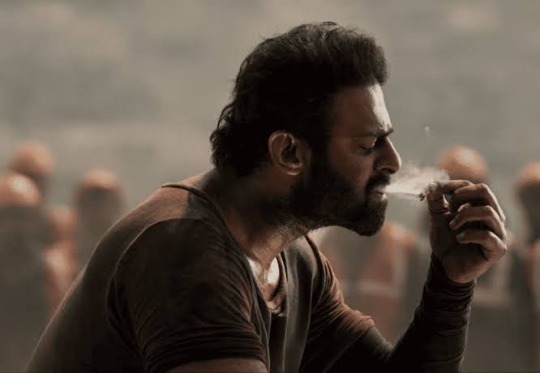


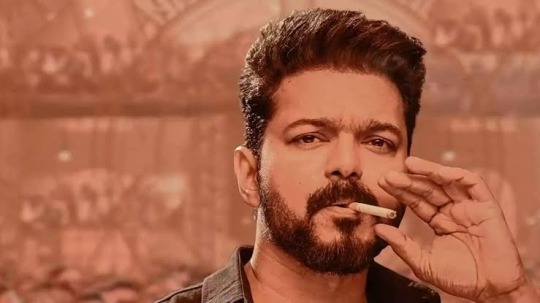
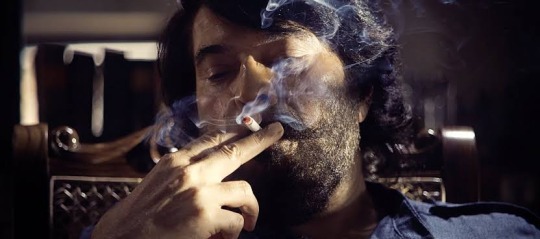
my fav genre 😫
#southindianmovies#thalapathy vijay#kollywood#mallu#mohanlal#mammootty#prabhas#prithviraj sukumaran#telugu cinema
27 notes
·
View notes
Text
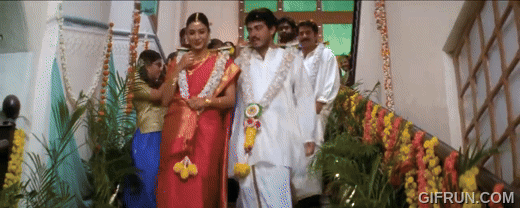
Kandukondain Kandukondain (2001)
#kandukondain kandukondain#tamil cinema#sense and sensibility#desiblr#i love this movie#tabu#ajith kumar#aishwarya rai#mammootty#kollywood
23 notes
·
View notes
Text



Adoor Gopalakrishnan - Vidheyan (1994)
13 notes
·
View notes
Text
PEOPLE SHOULD GO WATCH KAATHAL. MAMMOOTTY PLAYED A WELL THOUGHT OUT GAY CHARACTER. The movie is fucking beautiful.
27 notes
·
View notes
Text
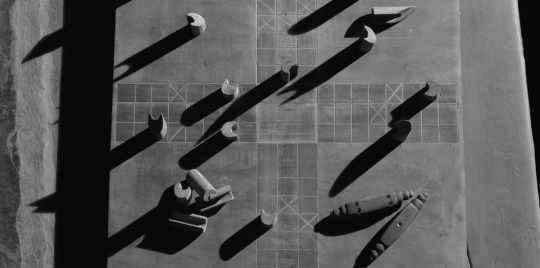


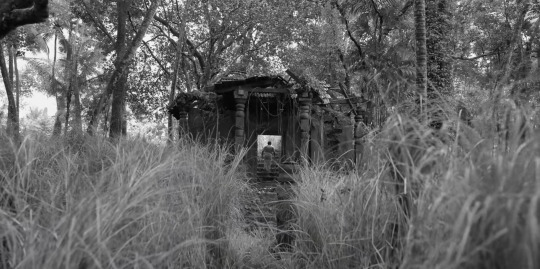
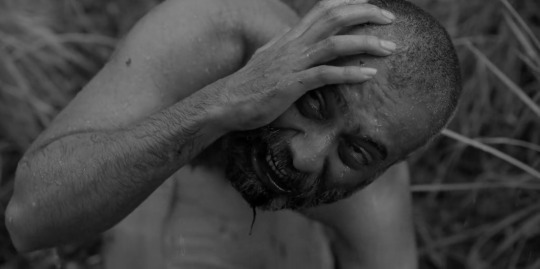
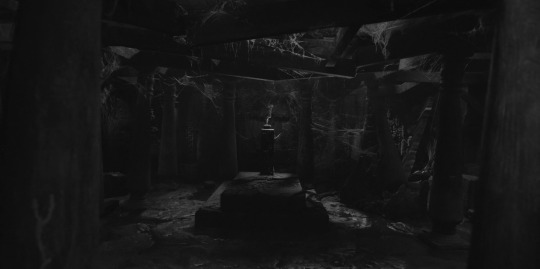
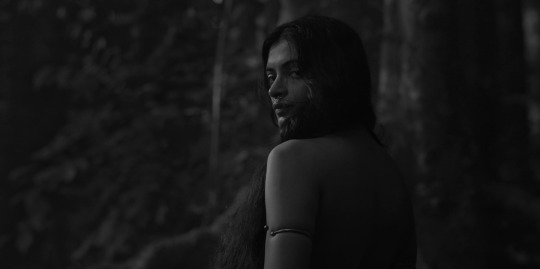
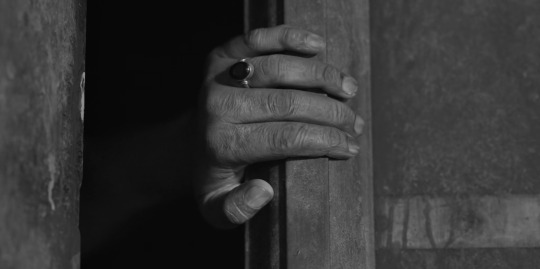
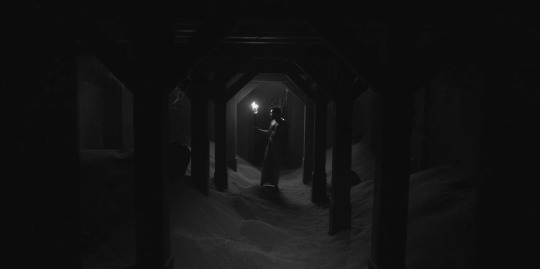
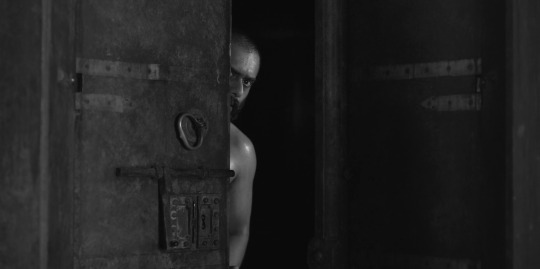
ten frames.
bramayugam (2024) — dir. rahul sadasivan
#bramayugam#movie log#april 2024 watch#10 frames#genre: horror#era: 2020s#country: india#film screencaps#mammootty#arjun ashokan
13 notes
·
View notes
Text










BEST OF 2024 Bramayugam ഭ്രമയുഗം Directed by Rahul Sadasivan
8 notes
·
View notes
Text
Bramayugam Commentary
So, I just watched Bramayugam last night. Mind blown! Loved every second! It was such a well developed story and all the characters left such an impact on me by the end of it.
I just had a couple of thoughts that I wanted to share about it! Spoilers below:
What I find so interesting about the film, is the themes that are interplayed throughout its run. Particularly in regard to the overall theme of the corruption of man brought on by power. Yes, this is visible on a larger scale when we consider the mystical powers of the troll and other supernatural entities within the film.
On a smaller scale though, there’s a commentary on power dynamics we can relate to as humans, which in this particular context is based on the class system. When Thevan first approaches Potti and is given access to shelter, he hesitates speaking of how he is lowborn and doesn’t deserve to have something like this offered to him. Potti then replies by saying that caste isn’t something we’re born into, but something that we earn based on our karma. A kind and generous statement, when you look past the eerie presence of the lord. It’s just enough of a statement for Thevan to accept the offer (that and Potti wouldn’t let him leave even at the beginning of it all).
Except, even with his magnanimous statement, what should be noted is how he chooses to treat those around him. Starting with the cook when Potti wants to spit out his paan. It would be easy for him to spit into the bucket if he wanted. But he chooses to embarrass the cook by spitting just enough in his direction that it lands on him too. There already starts to be a dissonance between what he says, versus how he behaves.
This behavior is directed towards Thevan too as the film continues. However, what’s interesting is not his poor treatment later on in the film, but how Potti treats him immediately on his first night there. When Thevan sings, he doesn’t bother to appreciate it or compliment him even when he asks specifically, choosing to snooze off instead. By refusing to acknowledge his talent and time, Potti is breaking him down slowly and strategically, putting him in an inferior position in contrast to himself and stripping him of his humanity. As time goes on, Potti’s treatment of Thevan gradually becomes worse and worse till Thevan gets to a point where he suddenly doesn’t understand how he ended up in a terrible situation with no escape.
This issue of being lower than the people around them is brought up often throughout the film where characters are constantly questioning “who are you command me when you are below me?” Even towards the end, this is the question the Chatan himself brings up to the cook, despite the fact he is a creature who knows that these concepts are constructs of humanity and are overall, nothing more than an illusion. Thus the name Bramayugam.
Exploring these dynamics is what makes this film as amazing as it is for me, because it makes a statement about the ability of power to corrupt even when people are able to acknowledge the systems in place that create the imbalance of power. It doesn’t stop them from abusing power as long as they are able to feel superior in contrast to those around them. Which is not to say that this movie is a commentary on caste dynamics, because I don’t think that’s particularly true. I just think it’s one of the underlying story developments that drives forth the overall theme.
That’s what makes this film as chilling as it is for me. It’s also why I love it so much because it’s a darker and more dramatic projection of what the world faces on a daily basis.
#Bramayugam#mammootty#indian films#malayalam#Malayalam Films#arujun ashokan#siddharth#Rahul Sadasivan
15 notes
·
View notes
Text
Kaathal the core WHY IS NOT ONE TALKING ABOUT KAATHAL THE CORE???
#I support ikkas rights but I also support ikkas wrongs#I may or may not have cried like a baby towards the end#mammootty#jyothika#kaathal the core#mollywood
43 notes
·
View notes
Text
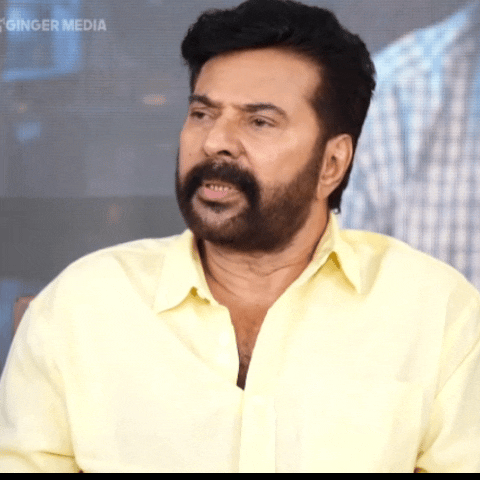
15 notes
·
View notes
Text
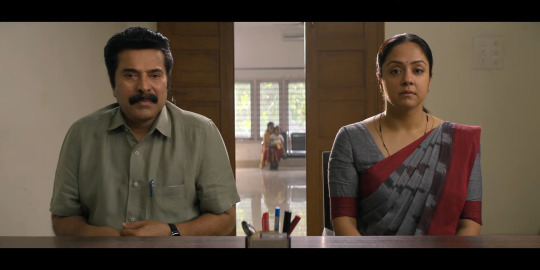
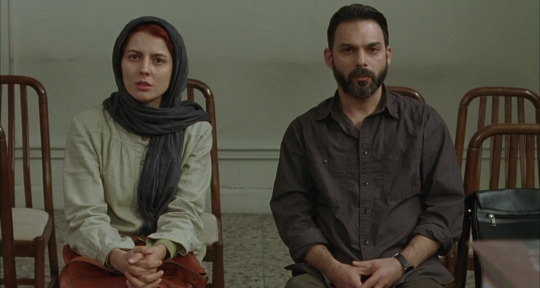
Kaathal The Core (2023 // A Separation (2011)
33 notes
·
View notes
Text
Kaathal – The Core

[ Available for streaming on Amazon Prime. This is an appreciation post. A proper criticism by experts linked at the bottom of this post.
CW: heterosexism PSA: Hema Committee Report
This post is my 2nd contribution (1st can be found here) to the conversation regarding Indian queer media that started in October 2024. I recommend this post by @neuroticbookworm and this post by @nihilisticcondensedmilk as well as this compilation by @starryalpacasstuff before reading this.
Throughout this post by the term Nasrani, I mean Roman Catholic Syrian Christians.]
Love, the Core


The title of the movie is very interesting. Kaathal (കാതല്) in Malayalam refers to the heartwood of a tree. Hence, it can mean pith or core (as the subtitle suggests). It is homophonous with the Tamil word kaathal (காதல்) which means love. Average Malayali audience is familiar enough with the word kaathal as love to make that association faster than with heartwood. This bit of word play conveys that it is love that’s at the core of the movie. And that the queerness central to the movie is practically essential.
Catholic Background

The movie opens on a Sunday Mass and we get first glimpse of several important characters as the camera pans through the crowd to the accompaniment of the continuation of the third g’hanta prayer, the one that follows the Institution Narrative, that praises the grace bestowed upon the human kind. The order in which we get a glimpse of the characters is also important, I think, especially considering the distance from alter. While this scene is easy to forget, it establishes which community they belong to - Nasranis as indicated by the East Syriac Rite liturgy. The particular prayer choice is interesting:
Forgiving our debts, You sanctified us sinners, enlightened our minds, defeated our enemies, and glorified our frail nature by Your immense grace.
Tight-knit & Rurban
In the next scene we get a glimpse of how tight-knit their community is through a conversation about pork sharing[1]. This is followed by Femy, Mathew's daughter, hitching a ride on someone’s scooter indicating she studies out of town and is back home to spend whatever is left of the weekend. The scene between Omana and Femy foreshadows that Omana’s silence on the matter of divorce is going to be a thorn in the upcoming election campaign.
Sibin drags Mathew to try and break off an inter-class heterosexual couple whose love affair is disapproved by the woman’s family, for the man is a migrant worker. The intention is to secure Mathew four votes from the family through Mathew’s intervention. Sibin informs that the Local Committee has decided that Mathew would be their party’s candidate in the by-election in ward 3. When Mathew inquires if that’s their party's stand on love, Sibin doesn’t sugar-coat the fact that on the ground the party has to appease the conservative politics of their core vote bank (working-class folks like Rajan) in spite of their more liberal views online. Ironically, Mathew stands up for the couple and right behind him stands his own paramour, Thankan.
Less-Discussed Facets of Queer Life – The Wife*
Kaathal focuses on Omana, who was unwittingly married to an androphilic man, as much as it focuses on queerness, outing and heterosexism in general. While it's not rare for movies to have queer characters in Malayalam, it's very rare to have movies which focus on queer characters and even rarer for the focus to be on their spouses. My Life Partner (2014) and the bio-pic about the poet Kamala Das, Aami (2018) are the only other such Malayalam movies as far as I can remember and the married man in both these movies were ambiphilic (aka bisexual).

Omana struggles in their marital life for two decades and we meet her when she's trying to get a divorce from Mathew. In an unfortunate twist of events, her submission to the court which was supposed to be a private thing, becomes public knowledge and topic of discussion since Mathew is a candidate in the by-election to ward 3 of Teekoy panchayath**. Since there is no other election happening at that time, all energy and gossip is focused on this particular candidate’s scandalous divorce procedure. It becomes public knowledge way too fast and even before she could explain herself, everything basically goes out of control. While Mathew is reasonably upset with her, we learn during the court procedure that he was always reluctant to discuss divorce.

Omana is a stand-in for all the women who are married to men who are not gynephilic and therefore have to struggle in the marriage because their emotional and sexual needs are not met. Kaathal is not the only movie discussing this in the recent years. We have seen two very famous movies Dear Ex (2018) and The Blue Caftan (2022) which talks about the same topic but from very different angles.

Dear Ex is about the relationship between a woman and her husband’s paramour after her husband is dead and the insurance money goes to that male lover. The male lover has been the one who was taking care of her husband when he was very ill and she reels from the doubt whether her husband ever loved her.

In The Blue Caftan, the wife is about to die and she implicitly gives permission for her husband to pursue the young apprentice whom she did not like in the first part of the movie but later warms up to when she realise she mistook him and accused him of things that he didn't do (for which she feels guilty) as well as the support he offers when he finds out that she is ill and helps her husband take care of her despite the husband backing off when things got murky between them. The young apprentice returns to take care of her and their shop - their dreams and legacy.
In Kaathal, no-one is dying. The movie is very idyllic in an odd, tearful way despite the drama. (Probably Malayali folks are moved to tears just by seeing Mammootty cry and the effect might not be the same on non-Malayalis.) It is about the woman getting divorce and the couple moving on with their lives. This sort of happy ending which is a little too unrealistic considering overall tone leans towards realism.
Adultery Situation
While it is not okay for Omana's affidavit to have leaked and for Thankan to be outed, there are very few precedents to the legal battle she was entering. Daniel Crasto vs The State of Maharashtra (an actual case referenced in the movie) is what inspired advocate Ameera to move the court in a manner that would allow for divorce proceedings to not take a decade as it did with the case referenced (filed in 2009, final judgement in 2019). The courtroom sequences in the movie are set up to be informational and gives answers to a lot of questions that are obvious to arise. I wish the movie had mentioned the circumstances of decriminalization of adultery (Joseph Shine v. Union of India (2018)) in India and how that too plays into the divorce procedure.

Omana had already discussed the matter with her daughter as well as with her mother. But the men in her life are kept out of the conversation before filing the case since the previous experience are not exactly confidence inspiring. Having discussed it with her father and not getting any support or reassurance, Omana is set up to be the 21st century foil to Alice from K. G. George’s iconic movie Adaminte Vaariyellu (1984) where interestingly, Mammooty’s character was the paramour.
Malayali Christian Masculinities
While Omana’s father, Philip, is only mentioned, his presence looms large in spite of him being dead and gone. He is a reflection of the type of Nasrani hyper-masculinity that had been dissected through many Malayalam movies including RDX, Joji, Appan and Aarkkariyam in recent years. Omana’s brother, Tomy, struggles to break out of the mold he was raised in and tries to be a supportive elder towards the end.

Given the kind of patriarchy she was raised under, it is not surprising Omana had kept quiet for so long, raised their child together and put in effort to hide their marital troubles and to lead a harmonious seeming life in front of others.

An important dimension to Omana, comes from her relationship with her father-in-law, Devassy***. The depiction of their relationship is inline with a trend in recent Malayalam cinema, where characters’ relationships with their parent(s)-in-law outwears those with their spouses and lovers. In The Teacher (2022), the woman’s mother-in-law (a local Communist leader) supports her decision to separate from her son as well as enlists the help of a thug (one of my favourite queer side characters who has the most delightful pairing with a super jealous, law-bending cop) to help her exact revenge. Meanwhile, in Ullozhukku (2024) the woman decides to leave her paramour for her mother-in-law.
Devassy represents a different type of masculinity which we also see reflected in Mathew. This form of Nasrani masculinity too is a familiar flavour in Malayalam cinema, like in the excellent Maheshinte Prathikaaram (2016). Omana finds in him a father whom she did not have but dearly wished for. They partake in the same pain ever since Femy was born and Mathew did not show up to bring Omana home as he was busy taking care of Thankan. (It is customary for women to return to their native home (Omana’s native home is in Meppara) when they are pregnant, especially during their first pregnancy, and to return to their patrilocal or neolocal residence after the baby is born.) Devassy’s political leanings, especially him abandoning centrist UDP (stand-in for the Indian National Congress-led UDF alliance) during the days of Emergency and joining CRP (stand-in for the Communist Party of India (Marxist)-led LDF alliance), is also indicative of the left-leaning values he held. It is also interesting to note that Devassy had thought to take Mathew to a doctor when he learned that he is androphilic (an approach indicative of the time as it was before homosexuality was depathologized).
Another brand of Christian masculinity get a passing mention when Mathew's sister calls Devassy to complain about the loss of social capital her probably un(der)employed husband faces abroad who has to renegotiate his masculinity at every step as a migrant. Men lose their purpose when they move abroad with their bread-winner wives since they are raised with certain values and motivations that are difficult to unlearn. They seek and find solace in their community gatherings. Loss of social capital gets reflected in their lives abroad too and social auditing would make their lives difficult.
Husband, Lover, Wife

Omana loves Mathew deeply. They have actually found companionship in each other. The platonic love between them is hinging on mendacity and selfishness. They have been with each other for a good chunk of their lives and Mathew is reluctant to let go of Omana. When she chooses to free herself from their entanglement, it is also to liberate Mathew from the shackles they have bound themselves with.




Thankan on the other hand is completely disempowered in this particular scenario. As his friend, Rajan Mesthiri points out Matthew has wealth that he would inherit from his father whereas he has nothing. Because of this scandal, he was losing social capital and has to survive cruel homophobia everywhere - in the junction, at his place of work and even on the wall of his yard where miscreants engrave slur (kundan). This is on top of him struggling with loneliness and deprivation of love. A particularly harrowing sequence is of him packing snacks on behalf of the shopkeeper to give to Devassy who dotes on his daughter-in-law and buys her favorite snacks daily. Among the love denied to Thankan is that fatherly affection reserved for one's child's spouse.


Thankan is all on his own. He is a working-class man who lives by himself before his nephew, Kuttayi, took refuge there. There isn't any other familial support system. People are willing to send their daughters for driving classes with him due to a twisted form of benevolent heterosexism.
Meanwhile, Mathew has lots of people offering him support and stand with him, denying allegations and supporting him as a queer candidate, even though he doesn’t appreciate that.

Mathew doesn't hang out with Thankan in the public eye. He sticks to the story that they are just acquaintances and people would believe that since their dalliances happen in Pullikkanam (a village in Kottayam-Idukki border) and in Teekoy they are just acquaintance. The only visible connection between them other than longing stares and campaign notice is a framed school photo of them that hangs in their respective homes. They have been lovers since their school days and have been hiding that fact as much as they could.
It is like Thankan is being left behind. The kind of deprivation of social capital along with childlessness indicates that no one is going to take care of him in his hour of need. Mathew receives a lot of support from party members and others and lot of people come to his rescue, partly due to him having served in their service co-operative bank for more than two and half decades.
Co-operative banks, unlike commercial banks, are run locally by elected members and provide financing that the community requires. Since those involves a lot of trust and relies on social capital, the discretion exercised by bankers is crucial in risk-assessment and in securing credit to those who need it. In November, you could find co-operative societies and banks in Kerala decorated with rainbow flags (the ones with seven colour, different from the queer-pride rainbow flags).
Progressive versus Realpolitik
There is strong anti-incumbency in ward 3 as indicated by displeasure over lack of infrastructural development, a bridge in a notable case. Tomy's construction job dreams hinge on Mathew's victory. Moreover, in the challenging times (rise of Hindutva), CRP needs to strengthen itself.
The realpolitik is in how the Communist party, CRP, sides with Mathew and doesn't reach out to Thankan, one among proletariat they supposedly stand with. It is also in how they pander to the conservative views of their vote bank. It is there in choosing Mathew, a Catholic, to represent party in the election in hopes of winning over Nasrani voters in their ward. It is in asking Mathew to speak to the vicar about this matter. It is also in their attempt to demonstrate their stance on personal liberty by insisting Mathew should contest and they are making a statement by fielding ‘a candidate like him’ in the election. It is in how the party is politicizing and employing an outed man’s identity without consulting with him first while knowing that it is putting so much additional pressure on him. This can be seen as a critique of leftist political movements in Kerala from leftist creators including Jeo Baby and Mammooty.
Owning the Narrative

The movie has a member of Queerla meet with Mathew outside of the family court. (Queerla is one of Kerala’s organisations focused on the welfare of sexual and gender minorities. The others are Queerythm and Sahayathrika.) But under those circumstances, he is not in a position to welcome the help the organisation could offer him. Eventually, after reconciliation with his father, after having to confront the fact that he was losing the case and Omana, that he comes to his senses and allows himself to realise that he might not be on the right track and that he can come out, that too with Omana insisting that he should also be free for she cares and loves him. So, he lets her go, accompanies her to Meppara, to her native home and invites Thankan fully into his life. Omana and Mathew continue to support each other.






When Mathew comes out through a video that Femy shoots for him, it becomes a state-level news. The fact is that Kerala is yet to have any openly (there have been closet cases) queer candidates win elections. Maybe we will have such a candidate in the future. The actor who plays the role of Femy in the movie is openly bisexual.
Church, the non-Monolithic Presence

Teekoy vicar is presented as an open-minded person. But, he is an exception. Bishop House and the church committee do not share his opinions on the matter of divorce and non-heterosexual union. However, the bible verses and prayers place emphasis on truly open-minded and all-embracing religiosity.
Trivia
There are multiple reasons why this movie is to Little Hearts (2024) what Great Indian Kitchen is to Jaya Jaya Jaya Jaya Hey and would make for an excellent pair watching.
There has been complaints that we missed out on a chance to watch Mammooty romance with a man. So, here's the kiss scene between Mammooty and Mohanlal in Nanayam (1983).

[* Chinese use the term tongqi (同妻) to refer to a woman married to a gay man. Beard is a close enough term but doesn't convey the information asymmetry. There are no such popular terms in Malayalam.]
[** Administration in India is divided between union government, state governments/union territories and panchayat/municipalities/municipal corporations. Teekoy (and all other locations in the movie are real locations in Kerala) is an actual panchayat (a village consisting of sub-divisions called wards) in the state of Kerala. The elected representative (referred to as member) of ward 3 was Kurian (of UDP) and it is to fill his seat after his passing that the ward is facing a by-election soon.
While Kerala has multiple parties with varying ideologies, most important among them are those which form part of the two alliances that have ruled the state: Left Democratic Front and United Democratic Front. CRP and UDP are stand-ins for these two in the movie. Biggest political part in the world, BJP, although is part of the ruling collision (NDA) in the union government as well as in several state governments, is not as significant as the others in Kerala, especially in state legislature. BJP is represented by DJP in postures. In places such as Teekoy their influence is even less significant and remains so in the movie too.]
[*** Devassy is the Malayalam variant of name Sebastian.]
[1] Pig being a large enough animal to involve more than a family to finish it off.
-


I am yet to choose between Gaami (2024) and Moothon (2019) for my next appreciation post. If you decide to watch Gaami, please feel to ask about content warnings. I think it is better to watch the movie without reading about it.
youtube
#queer indian media#media recs#movie recs#queer movies#asian dramas#indian shows#desiblr#asian lgbtq dramas#asian media#indian media#queer#indian queer culture#mollywood#malayalam#malayalam movies#desi cinema#kerala#malayalam queer movies#indian queer media#indian queer movies#malayalam movie#malayalam cinema#kaathal the core#mammootty#jyothika#lgbt#lgbtq#lgbtqia#gay
6 notes
·
View notes
Text
Okay okay, rn I'm still reeling from a movie I watched with my family in the theatre. Details below
Title :Bramayugam
Director: Rahul Sadasivan
Main Cast: Mammootty, Arjun Ashokan, Sidharth Bharathan, Amalda Liz, Manikanda Rajan
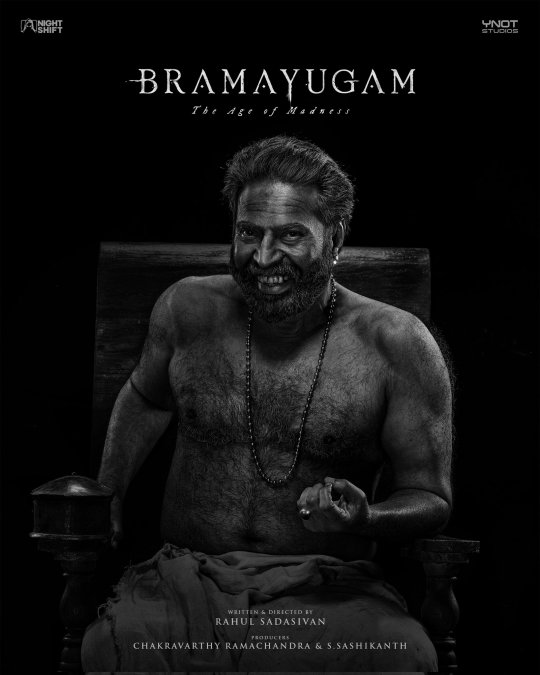
The movie was just fantastic. Even though it was a black and white movie, for some reason I felt as though all of a sudden the spectrum of colours was immense. I have no idea how to express what I mean exactly, but ykiyk.
Spoilers below
God, the twists just brought me back to my grandma's home filled with all the folk tales. I was kinda rooting for the chatan (goblin/demon etc whatever you want to call it), and I was disappointed when Mammootty died. But then I just loved the final twist.
The whole movie just reminded us of how power can be abused in the wrong hands.
There may be some who don't like the movie, but nevertheless it definitely is a must watch for those who love folk tales and a little Godly madness.
12 notes
·
View notes